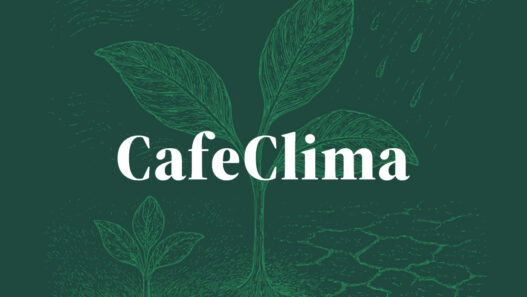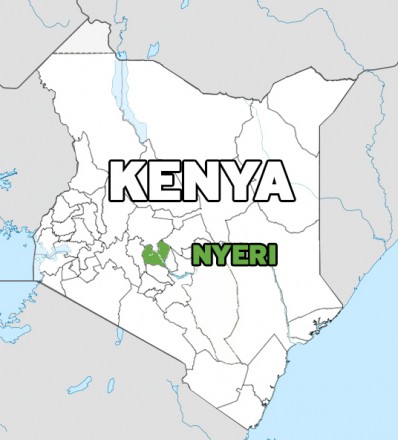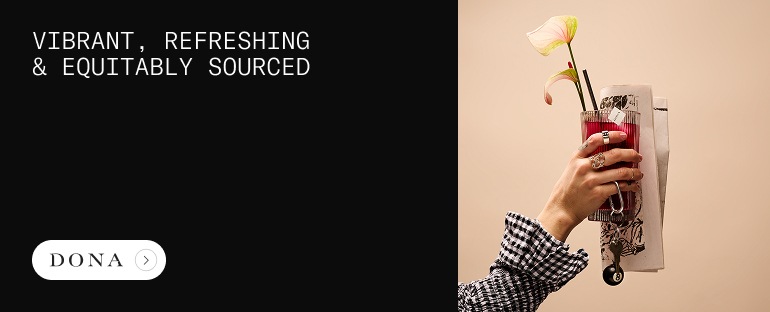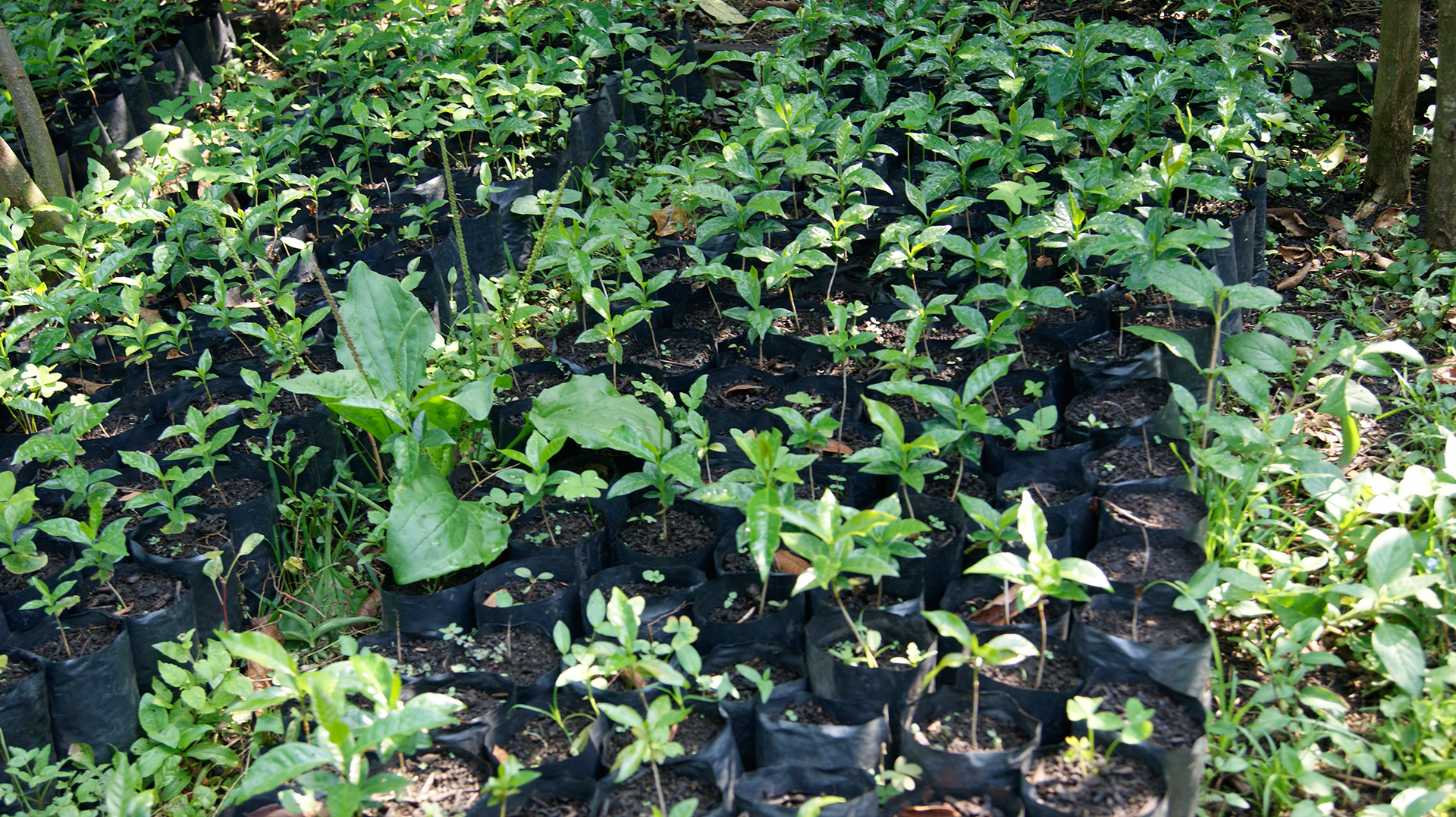As coffees from Kenya’s main harvest are being readied for export, the governor of Nyeri, one of Kenya’s premiere coffee counties, is making sweeping changes to the way it trades its coffee. Governor Nderitu Gachagua has issued an order to mill and sell all of Nyeri’s coffee in Sagana, a town in the Kiryinyaga District, effectively shutting other mills down. This raises serious questions about the government’s motives and the potential for decreasing coffee traceability and quality.
As a result, 13 co-operative societies in the region are taking the governor to court on February 10th. Gachagua’s move puts businesses like the Central Kenyan Coffee Mill in the crosshairs of the government, who are in the process of shutting this business down.
The Central Kenyan Coffee Mill has operated for the last seven years, and members of the government have threatened to now shut it down due to alleged failures in obtaining building permits. AllAfrica talked to general manager Charles Mwea, who said: “We are milling the coffee of 50 societies, which is 153 factories from Central Kenya region and more than 12,000 metric tonnes from 300,000 coffee farmers who are as far as Meru, Embu, Kirinyaga, Kiambu and Nyeri counties.”
Central Kenyan Coffee Mill reportedly serviced upwards of 50% of Nyeri’s coffee.

Specialty coffee exporters, importers, buyers and roasters around the world are not thrilled with these changes. “If all coffee from Nyeri is processed through one mill, this will affect quality,” Jason Long of US-based coffee importer Cafe Imports told Sprudge by phone. Uncertainty is in the air, as Mr. Long told us, “there’s a lot of logistical questions I don’t know the answer to.”
Here’s a rundown of the situation from Square Mile Coffee co-owner James Hoffmann, published on his JimSeven blog:
Mette-Marie Hansen of Dormans Coffee (a specialty exporter based in Nairobi) released this official statement, which served as a communiqué between the exporter and its clients. We’ve chosen to republish the statement in full below.
However, as coffee was ready to be moved to the mills in the last few weeks, an order was issued that all Nyeri cooperatives must deliver their coffee to this mill, and no movement permits (a legal requirement to transport any coffee anywhere) were granted to farmers wishing to move their coffee to any of the other existing and licensed mills.
A group of 13 Nyeri Cooperative Societies have since taken their local government authority to the High court claiming their constitutional right to choose with whom and where they market and mill their coffee, stating that they were happy with their current service providers and that they would be in serious breach of signed contracts and loan agreements amongst other things, but this injunction is being contested by the county government and the case is not due to be heard until mid-February.
Nyeri is one of the areas from where we source top quality coffees and where the Central Kenya Coffee Mill (CKCM) is located. Although other Millers and Marketing agents are also affected, being the CKCM/CMS operating base, it is the main target of the local government authorities, even though it is only the agent of 5 of the above 13 societies and out of the total 44 Nyeri Societies it only has contracts with 13.
Last Thursday CKCM was issued an Enforcement Order which has, basically, ground its operations to a halt. The document cites various failures to acquire necessary permits and licences to carry out its business, including environmental and health and safety assessments. As you are aware CKCM/CMS mill and business is multi-certified (HACCP, ISO, FLO, RA, 4C etc ) and extremely professionally managed, so these are purely trumped up charges. However, the long and short of it is, if the County Authorities want to find a way to enforce the halt of operations they can do so.
It is critical for Dorman, and of course for CMS/CKCM, to see normality in day to day operations returned as soon as possible, the CKCM mill reopened and the movement of coffee begin again. Obviously, we very are concerned about the loss of our supply of certified and verified coffee from the Nyeri area, which will reduce if the chain of custody is broken. Likewise, we are worried about the impact this may have on the farmer/roaster relationships we have helped to build over the past years. However, to a large extent we have to let things run their course, or we will be accused of political interference.
Of course, in the background, there is huge amount of lobbying on the part of the coffee trade associations, marketing and milling agents with both the Coffee Board and the Principal Secretary to the Cabinet for Agriculture, and the matter is being taken to the highest level. It goes without saying that the farmer is the one that will ultimately suffer if sanity is not restored to the situation. We firmly believe that the farmers will not take this infringement on their rights lightly, they still remember the days of KPCU and do not want to return to poorly managed operations of days gone by.
We hope that some of the major roaster buyers of Kenya coffee will agree to put forward their concerns which can be passed on to the authorities to support the status quo and we trust that we can count on your support as we weather this particular storm. We feel that the best plan of campaign for now is to try and satisfy Kenyan demands with coffees from other areas and the good news is that we have a big crop from Central Province and that there will be plenty of good quality coffee from Kirinyaga, Muranga, Kiambu and Embu. The Nyeri cooperative coffee will probably eventually come to the auction, but it could be very much delayed as farmers and authorities fight it out. Even then we are not sure how it will be handled, as we are led to believe the intention is to market it all under a Nyeri label, which would mean it could lose its individual factory identity. Madness that might seem – but local politicians know very little about coffee.
We are praying that the status quo will be restored before it is too late and our best case scenario would be to write a follow up mail to you all in a week or two saying it was a storm in a coffee cup! However, what does this mean in the immediate future with a lot of visits planned for the coming weeks? It means that visiting the CKCM mill will not be possible until it has the blessing of the Nyeri Governor to resume normal activity. It also means that visits to Nyeri factories will be difficult, as again we will be accused of trying sabotage the new direction for coffee sales. Of paramount importance to us is the personal safety of all our visitors, so please bear with us if we need to alter the programmes that have already been fixed.
For more context, here’s an email ECOM Trading issued to its clients:
Licensed coffee millers and marketing agents are being forced out of the area, as the newly elected Nyeri county government tries to seize the marketing rights of the crop.
Politically, this is being sold to farmers as a way to control coffee sales and demand higher prices.
Previous attempts to centralise the sale of cooperative coffee in Kenya have usually ended in failure as farmers end up subsidising expensive monopolies (eg KPCU in the past)
Traders now fear there could be disruption to the flow of coffee at the auction, as well as a loss of traceability, leading to de-certification of many supply chains.
Similar, though less aggressive, tactics are being used in Meru and Muranga. Other counties are trying to impose their own taxes on the movement and sale of coffee.
We worry that the strong-arm tactics being adopted in Nyeri will spread to other coffee producing areas, if successful.
The policies being adopted by the newly created county governments – power has only recently been devolved from Central Government in mid 2013 – are at odds with a national policy of liberalisation. However, the Central Government is yet to intervene to protect the rights of investors or to clarify any limits on policy making at a regional level.
As an active player in the Kenya market, ECOM is working closely with other members of the Coffee Millers & Marketers Association and the Kenya Coffee Trade Association to try and establish a dialogue with the Coffee Board of Kenya, and it’s parent Ministry (of Agriculture).
Developing…






















